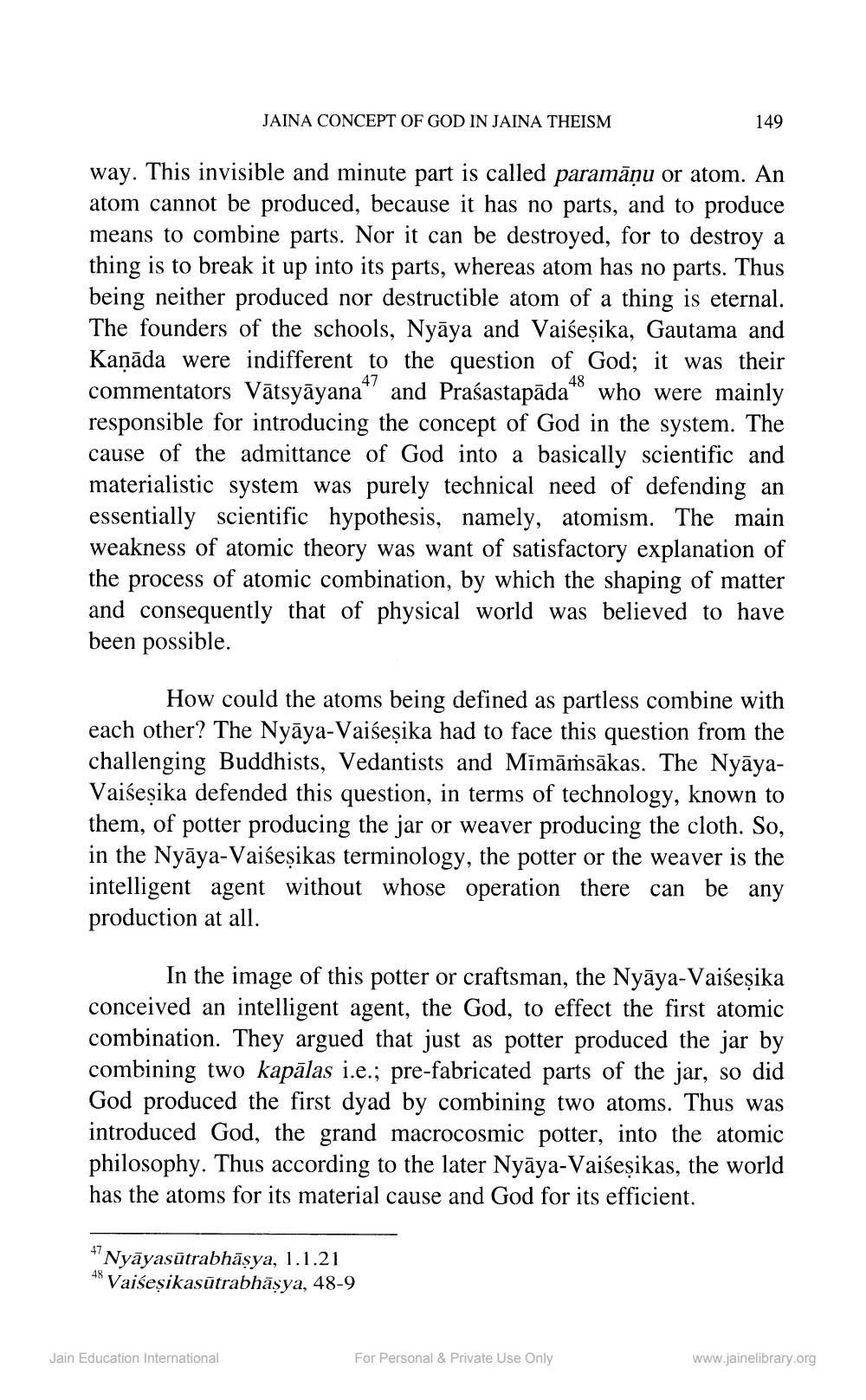________________
JAINA CONCEPT OF GOD IN JAINA THEISM
149
way. This invisible and minute part is called paramāņu or atom. An atom cannot be produced, because it has no parts, and to produce means to combine parts. Nor it can be destroyed, for to destroy a thing is to break it up into its parts, whereas atom has no parts. Thus being neither produced nor destructible atom of a thing is eternal. The founders of the schools, Nyāya and Vaišeșika, Gautama and Kaņāda were indifferent to the question of God; it was their commentators Vātsyāyana and Prasastapāda who were mainly responsible for introducing the concept of God in the system. The cause of the admittance of God into a basically scientific and materialistic system was purely technical need of defending an essentially scientific hypothesis, namely, atomism. The main weakness of atomic theory was want of satisfactory explanation of the process of atomic combination, by which the shaping of matter and consequently that of physical world was believed to have been possible.
How could the atoms being defined as partless combine with each other? The Nyāya-Vaiseșika had to face this question from the challenging Buddhists, Vedantists and Mīmāṁsākas. The NyāyaVaišesika defended this question, in terms of technology, known to them, of potter producing the jar or weaver producing the cloth. So, in the Nyāya-Vaišeșikas terminology, the potter or the weaver is the intelligent agent without whose operation there can be any production at all.
In the image of this potter or craftsman, the Nyāya-Vaišeșika conceived an intelligent agent, the God, to effect the first atomic combination. They argued that just as potter produced the jar by combining two kapālas i.e.; pre-fabricated parts of the jar, so did God produced the first dyad by combining two atoms. Thus was introduced God, the grand macrocosmic potter, into the atomic philosophy. Thus according to the later Nyāya-Vaiseșikas, the world has the atoms for its material cause and God for its efficient.
4?Nyāyasūtrabhāsya, 1.1.21 48 Vaiseșikasūtrabhāsya, 48-9
Jain Education International
For Personal & Private Use Only
www.jainelibrary.org




